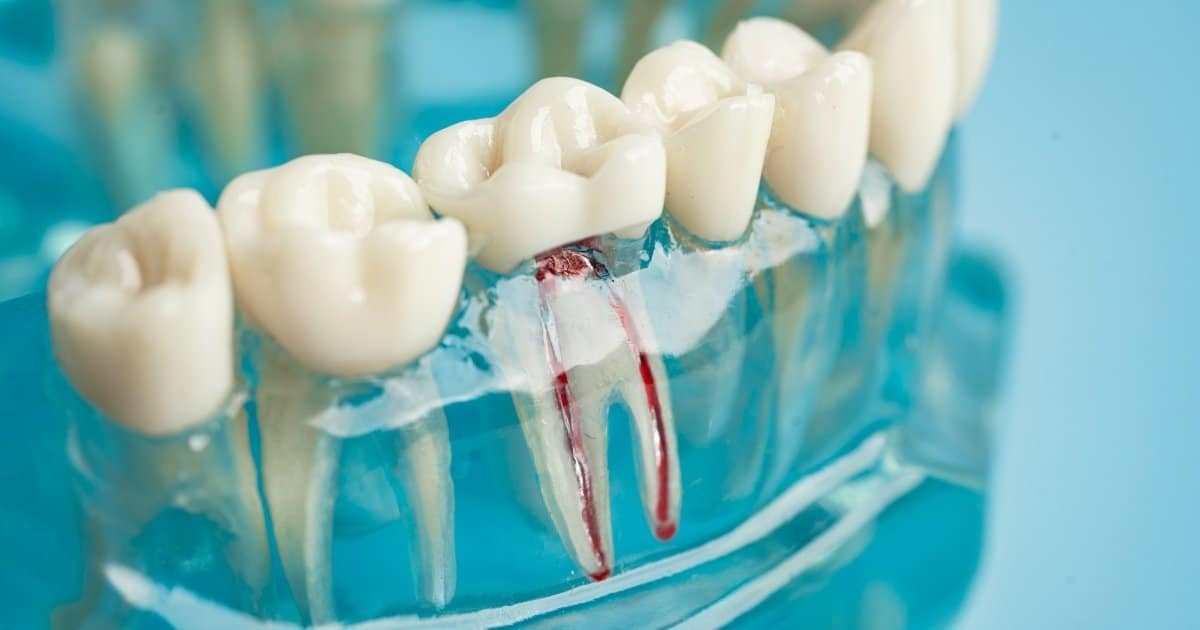Published on April 16, 2025

Do you also get frightened hearing about root canals? Do you fear the procedure and think there will be too much pain? Well, stop there. Root canal is an effective dental procedure with a good rate of success. So, if your dentist has suggested a root canal procedure for you, do not panic. Understand the method and read about it. When you know what it is, you will be more confident to say “yes” to your dentist.
What Is A Root Canal?
Saving a tooth that is infected or too damaged is what a
does. Inside every tooth, there is soft tissue named pulp, which contains nerves and blood vessels. Deep decay or trauma can cause the affected pulp to become inflamed or infected, resulting in pain or the development of an abscess.
Your dentist will perform a root canal to remove the affected pulp tissue, carefully clean and disinfect the inside cavity of the tooth. Then the inside will be filled and sealed. Finally, the tooth is restored to function using a crown, which also protects it.
Why You Might Need A Root Canal?
It is not merely about preserving teeth anymore; it is also about relieving pain and preventing more extensive treatment. The following are the most common reasons why a dentist may recommend root canals for you:
- Deep Decay: A cavity that reaches the inside pulp can cause the infection to cause pain.
- Multiple Treatments: Having several procedures on one tooth may lead to its deep flaying and to the pulp.
- Fracture or Chip: A cracked tooth allows bacteria to gain access to the pulp.
- Injury: Less easily seen, direct trauma to the tooth can damage the pulp.
- Prolonged sensitivity or pain: Usually, throbbing, pressure, or temperature is overly sensitive and provides a signal.
- Swelling of gums around a tooth: Infection under the surface may be indicated.
What Does The Procedure Of Root Canal Feel Like?
This is what you should expect when you enter the clinic for a root canal procedure:
- The area is fully anesthetized, so you won’t feel pain.
- You will experience the feeling of pressure, but it will not be painful.
- For most patients, the appointment typically lasts between 60 and 90 minutes, depending on the tooth being treated.
- It is normal to feel a little sore for a few days afterward, but most of the time, over-the-counter painkillers manage it fairly well.
Benefits Of Saying Yes To A Root Canal
Opting for a root canal means long-term dental health benefits:
- Preserves Your Natural Tooth: Keeping your own tooth helps maintain your bite and jawbone integrity.
- Restores Function: You will be chewing normally without pain or risk of further damage.
- Prevention of Further Infection: With the infection gone, the spread of infection can no longer affect adjacent teeth or bone.
- Supports Your Smile: Restored tooth looks and feels like any other tooth inside your mouth. So your smile is well supported.
How To Prepare And What To Expect After A Root Canal?
There isn’t a lot to prepare for a root canal. But a few steps can certainly make you feel at ease.
- Your mouth will be numb afterward, so it’s best to eat before an appointment.
- Wear relaxed clothing and bring headphones if you’d like to listen to music or a podcast while being relaxed.
- You may want to eat soft foods until the dentist places the permanent crown.
- Maintaining oral hygiene and adhering to all prescribed drug treatments are a must for proper healing.
- A permanent crown is often necessary to fully restore the strength and appearance of the tooth. So visit your dentist for that.
A root canal is not only about getting that tooth fixed; it will restore comfort and keep you in good oral health in the long term. If a dentist suggests this procedure, it means it is the most valid option for saving the natural tooth and eliminating the pain.
Have any more queries about root canals? Please call our clinic, and we will connect you with a professional.
